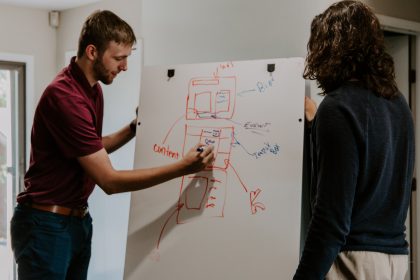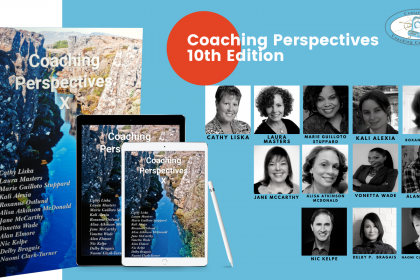Rather than offering ideas to a peer, a peer coach asks questions. When the peer is listened to, asked probing questions, and develops their own plan of action, the follow through is much greater because it is their plan. Consider this example of a peer coaching conversation:
Peer Coach: Hi, how are you doing?
Peer: Okay I guess. I wish I there was an easier way to coordinate everyone’s schedule.
Peer Coach: How do you do it now?
Peer: I call each person and check on possible dates or availability.
Peer Coach: What would you change?
Peer: I wish I could just talk to them all at once.
Peer Coach: What are the options for doing that?
Peer: I don’t know – this is what I am told to do.
Peer Coach: If it worked better would everyone be okay with a change?
Peer: Yeah, I guess so.
Peer Coach: What kinds of changes are possible?
Peer: We could schedule the next one when everyone is together in the first place.
Peer Coach: What else could you do?
Peer: I could email everyone simultaneously.
Peer Coach: What else?
Peer: I could have a calendar everyone can access.
Peer Coach: What are you going to do?
Peer: Ya know, I am going to suggest to everyone when they are together that we schedule the next time then or that we have a calendar everyone can access. I think they will go for it and if they don’t I will ask if I can email everyone instead of having to call.
Peer Coach: Seems like you really know your stuff – good idea.
Peer: Thanks.
Peer coaching really is this simple: instead of telling, ask.




